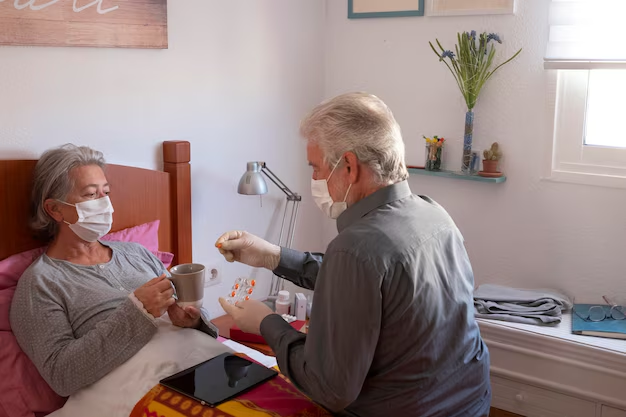Your Guide to Is Home Health Covered By Medicare
What You Get:
Free Guide
Free, helpful information about Medicare Insurance and related Is Home Health Covered By Medicare topics.
Helpful Information
Get clear and easy-to-understand details about Is Home Health Covered By Medicare topics and resources.
Personalized Offers
Answer a few optional questions to receive offers or information related to Medicare Insurance. The survey is optional and not required to access your free guide.
Understanding Medicare's Coverage for Home Health Care
When navigating the complexities of Medicare, many people often wonder: Is home health care covered by Medicare? The good news is that in many cases, Medicare does cover home health care—but there are specific conditions and guidelines. Let’s dive into what qualifies, what is included, and how this coverage connects to broader support systems that might ease your financial burden.
What Does Medicare Cover for Home Health Care?
Medicare Part A and/or Part B cover certain home health care services if specific criteria are met:
Care Must Be Medically Necessary: A doctor must certify that you need intermittent skilled nursing care, physical therapy, speech-language pathology, or continued occupational therapy services.
Homebound Requirements: You must be considered homebound, meaning leaving home requires considerable effort and the use of support.
Doctor's Certification: A plan of care that is regularly reviewed by your doctor is essential.
Medicare-Certified Agency: The home health care must be provided by a Medicare-certified home health agency.
What Is Included?
Medicare covers a variety of services under home health care, such as:
- Skilled Nursing Care: Intermittent nursing care that's not full-time.
- Therapies: Physical, occupational, and speech-language therapy.
- Home Health Aide Services: If you are also receiving skilled care.
It’s crucial to note that Medicare does not cover 24-hour-a-day care at home, meals delivered to your home, or personal care (like bathing or dressing) if this is the only care needed.
Expanding Your Financial Support System
If you're concerned about covering costs not handled by Medicare, consider these options:
Medicaid: For those with limited income and resources, Medicaid might offer additional support for home health care beyond what Medicare covers.
Low-Income Assistance Programs: These can help reduce out-of-pocket costs for eligible individuals needing additional support with Medicare costs.
Financial Counseling and Debt Relief: For those struggling with medical debt, speaking to a financial counselor might help you explore options for consolidating or managing your payments.
Exploring Further Assistance
While federal programs are a lifeline, additional resources can make a significant difference:
- Educational Grants and Scholarships. If you're pursuing further education or training to gain new skills, these financial aids can offset educational expenses.
- Credit Card Solutions: For those managing multiple debts, balance transfer credit cards or consolidation loans can simplify payments and reduce interest rates.
Considering Next Steps
As you evaluate your home health care needs and potential costs, it’s beneficial to look into all aspects of financial aid. By utilizing a combination of Medicare, supplemental policies, and other support programs, you can navigate the financial implications of health care more effectively.
Financial Assistance & Support Resources 🌟
- Medicare Savings Programs: Help pay Medicare premiums and may pay Part A and B deductibles, coinsurance, and copayment.
- Medicaid: An aid option for those with various levels of financial need.
- Credit Counseling Services: For managing debts, including medical expenses.
- Community Grants & Loans: Local government or non-profits may offer support for medical expenses and housing.
By understanding Medicare's coverage guidelines and integrating available financial resources, you can confidently face your home health care journey with a clear plan and peace of mind.
What You Get:
Free Medicare Insurance Guide
Free, helpful information about Is Home Health Covered By Medicare and related resources.

Helpful Information
Get clear, easy-to-understand details about Is Home Health Covered By Medicare topics.

Optional Personalized Offers
Answer a few optional questions to see offers or information related to Medicare Insurance. Participation is not required to get your free guide.


Discover More
- Am I Elgible For Medicare
- Am I Enrolled In Medicare
- Am I Qualified For Medicare
- Are Adult Diapers Covered By Medicare
- Are Chemotherapy Drugs Covered By Medicare Part d
- Are Colonoscopies Covered By Medicare
- Are Covid Tests Covered By Medicare
- Are Cpap Machines Covered By Medicare
- Are Cpap Supplies Covered By Medicare
- Are Dental Implants Covered By Medicare
